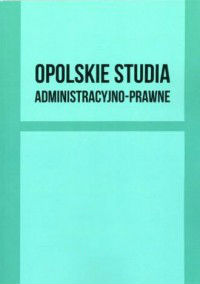Prikazi
Author(s): Enes Pelidija,Nedžad Murić,Hana Younis,Seka Brkljača,Elmedina Duranović,Edin Omerčić,Haris Bajić,Sanja Gladanac,Nedžad Novalić,Sabina Veladžić,Enes S. Omerović,Nedim Rabić,Edin Veletovac,Aida Ličina,Radovan Subić,Aldina Krečo,Muhamed Nametak,Vera Katz,Dženan Dautović,Mitsutoshi Inaba / Language(s): Bosnian
/ Issue: 42/2013
Godišnjak. Sarajevo: Centar za balkanološka ispitivanja ANUBiH, 2012, knjiga 41, 292
Esad Kurtović, Vlasi Bobani. Sarajevo: Društvo za proučavanje srednjovjekovne bosanske historije, 2012, 162
Vermitteln – Übersetzen – Begegnen: Transferphänomene im europäischen Mittelalter und in der Frühen Neuzeit. Interdisziplinäre Annäherungen, ur. Balázs J. Nemes / Achim Rabus, Nova mediaevalia; Bd. 8, Göttingen: V & R Unipress, 2011, 278
Tibor Živković, De Conversione Croatorum et Serborum – A Lost Source, Beograd: Istorijski institut, 255
Боро Бронза, Аустријска политика према простору Босне и Херцеговине 1699–1788. Бања Лука: Филозофски факултет, 2012, 407
Bakir Tanović, Čurčića vakuf, osnovan 24.redžepa 1149.h.godine (28.novembar 1736.godine), Sarajevo: Dobra knjiga, 2012, 124
Zijad Šehić, U mojoj Bosni - povodom stogodišnjice posjete cara Franje Josipa I Bosni i Hercegovini od 30. maja do 4. juna 1910. Sarajevo: Dobra knjiga, 2013, 221 (
Hannes Grandits, Obitelj i socijalne promjene u hrvatskim selima (18.-20. stoljeće), Studije slučaja Bobovac i Lekenik. Zagreb: FF-press, 2012, 291
Edvin Pezo, Zwangsmigration in Friedenszeiten? Jugoslawische Migrationspolitik und die Auswanderung von Muslimen in die Türkei (1918 bi 1966). Südosteuropäische Arbeiten, 146, Oldenbourg Verlag, München 2013, 374
Omer Hamzić, Gračanica i okolina u periodu između dva svjetska rata (pravno-politički i društveno-ekonomski razvoj). Travnik: Univerzitet u Travniku, Pravni fakultet u Kiseljaku, 2012, 453
Emily Greble, Sarajevo 1941 – 1945. Muslims, Christians, and Jews in Hitler’s Europe. Ithaca and London: Cornell University press, 2011, 276
Snježana Banović, Država i njezino kazalište; Hrvatsko državno kazalište u Zagrebu 1941. – 1945. Zagreb: Profil, 2012, 483
Husnija Kamberović, DŽEMAL BIJEDIĆ – politička biografija. Mostar: Muzej Hercegovine, 2012., 464
Ksenija Cvetković-Sander, Sprachpolitik und nationale Identität im sozialistischen Jugoslawien (1945 - 1991). Serbokroatisch, Albanisch, Makedonisch und Slovenisch. Wiesbaden: Harrassowitz Verlag, Balkanologische Veroeffentlichungen, Band 50, 2011, 453
Hrvatsko proljeće 40 godina poslije. Zagreb: Centar za demokraciju i pravo Miko Tripalo, Filozofski fakultet Sveučilišta u Zagrebu, Fakultet političkih znanosti Sveučilišta u Zagrebu, Pravni fakultet Sveučilišta u Zagrebu, 2012, 439
Kosta Nikolić, Vladimir Petrović (prir.), Od mira do rata: dokumenta Predsedništva SFRJ. Tom 1, (januar - mart 1991), Institut za savremenu istoriju, Fond za humanitarno pravo, Beograd, 2011, 480., Od mira do rata: dokumenta Predsedništva SFRJ. Tom 2, (jun – jul 1991): rat u Sloveniji, Institut za savremenu istoriju, Beograd, 2012, 376
Amra Čusto. Uloga spomenika u Sarajevu u izgradnji kolektivnog sjećanja na period 1941-1945. i 1992-1995. ̶ komparativna analiza. Sarajevo: Institut za istoriju, Kantonalni zavod za zaštitu kulturno-historijskog i prirodnog naslijeđa, 2013, 142
More...



